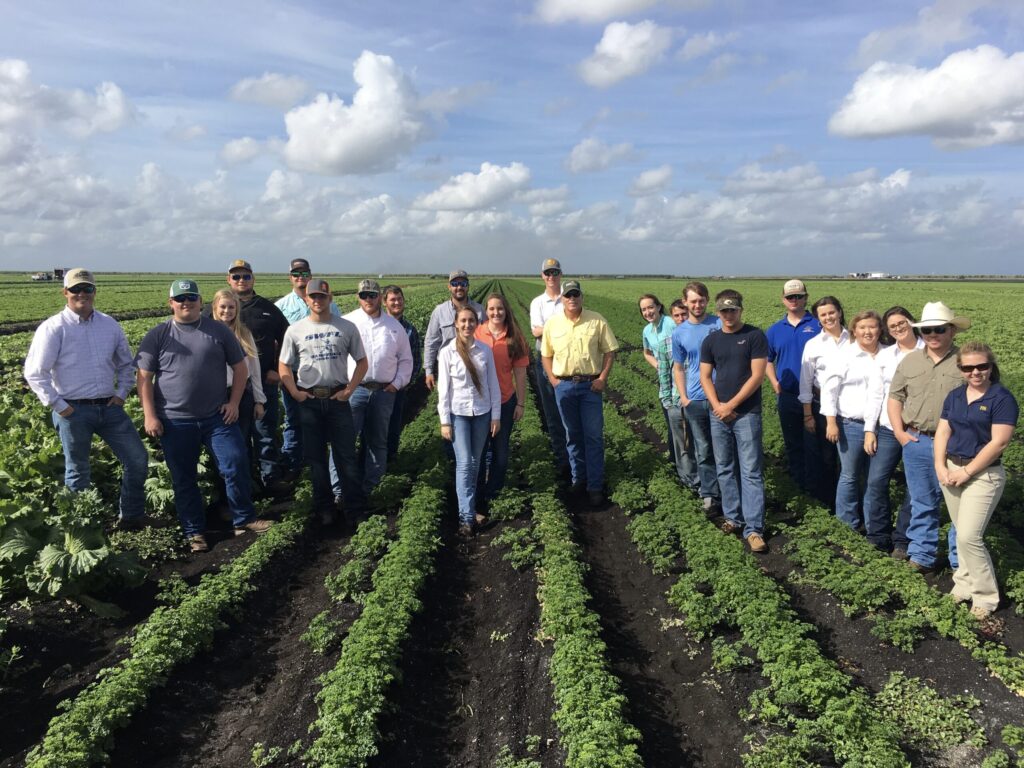Warner University’s Ag Program Tailored for Potential
by TERESA SCHIFFER
When Warner Southern College opened its doors in Lake Wales in 1968, there were just 27 students in that first freshman class. Forty-three years later, the campus is thriving as Warner University with roughly a thousand students on campus every year. Since 2013, when Agriculture Studies was added to the list of majors the school provides, the school has made a name for itself in the field.
Justin Sharpless took over as Agricultural Studies Chair in January 2015.
“Our program was really born out of the industry,” he explains. The decision to add an ag degree to the offered curriculum at Warner was not made on a whim. The process began in 2010 when then-university President Gregory Hall designated an Agricultural Degree Task Force to survey leaders in the ag industry to determine what they were looking for in college graduates entering the field.
Adam Putnam, who was commissioner of agriculture for Florida at the time, was among the first to weigh in on what the industry needed from new grads. He liked the idea of Warner offering an ag degree and wanted to see a program developed that would give students a well-rounded education in agriculture. There are plenty of schools in Florida that offer specialized degrees in agriculture, but one was needed that provided a more general education.
Warner University now offers an agriculture degree that is as diverse as the industry itself. Students are prepared for their future careers with lots of hands-on, real-world experience.
“A lot of agricultural businesses are diverse,” explains Sharpless, “and they wanted graduates that they could mold into whatever role they wanted them to be in.”
Students in Warner’s ag program take classes in plant science, animal science, agribusiness, policy, ag mechanics, and a variety of other areas. Sharpless oversees the internship program and says, “Students start taking internships no later than their sophomore year. By the time they graduate, they’ll have over 500 hours of industry internship experience.”
In a normal year, there are about 50 to 80 enrollees in the ag program. Of course, COVID made the last year a bit different, but overall the program is growing. In addition to the array of courses the students take, they also have access to a state-of-the-art facility for more firsthand experiences with agricultural issues. There is a land laboratory, a greenhouse, raised beds for gardening, an ag mechanics shop, scientific labs, and a cattle pasture and citrus grove are currently in development.
Students have been growing herbs and produce with the goal of hosting plant sales. They will soon be growing ornamental plants and starter plants to offer to the public as well. Sharpless is excited to work toward a goal of self-sufficiency for the program through sales of the products raised by students.
A 17-acre pasture is being fenced in this semester which will provide a grazing area for cattle, with a citrus grove in the middle of it.
“We’ll have a small herd,” Sharpless says of the cattle-raising project. “Our plan is to do a fundraiser where we ask individuals to donate red heifers to us, and we’ll have a brand board and things like that which will be a permanent structure there, where we can permanently recognize their ranch that donated a red heifer to us.”
The goal is to have about five head of cattle on the grounds — cows with calves that can then be sold to raise additional funds for the program. If things go according to plan, the first herd will take up residence on campus at the beginning of the next school year.
The Collegiate Cattlemen’s Organization is one of Warner’s student associations available for the undergrads to join. This organization is affiliated with the Florida and Polk County Cattlemen’s Associations. Members help with various events, bring in guest speakers to address ag students, and, prior to COVID-19, supported a ranch rodeo team. Roughly 20 students are involved in the Collegiate Cattlemen’s Organization in any given year.
Sharpless is thrilled to be the head of this innovative ag program, and he has a long history with Warner University. His family moved to Lake Wales when his grandfather enrolled in that first class back in 1968. Since then, the family has maintained close ties to the school.
Looking ahead, Sharpless explained his hopes for the program’s future.
“Our goal is to be self-sustaining. With our plant sales, we’re going to put the money from that back into buying the next round of seeds, fertilizer, and that kind of stuff. The goal is for students to learn, but as long as we’re not just a line item on a budget, that’s the goal.”
Sharpless would like to see the department eventually raise bull calves and heifer calves to place in the Florida Cattlemen’s Association’s annual heifer sale. He’d also like to see the planned citrus grove produce mandarins to market and sell to the public, as well as sales contests within the marketing classes.

